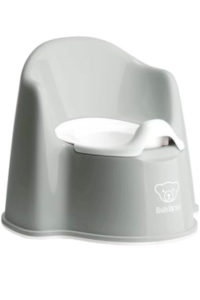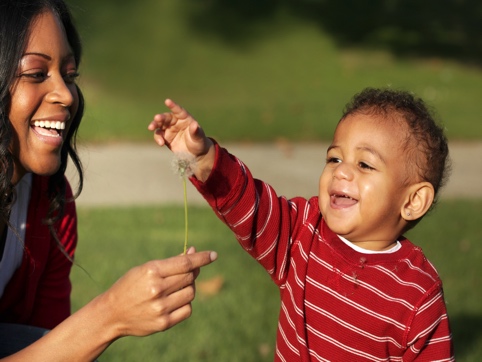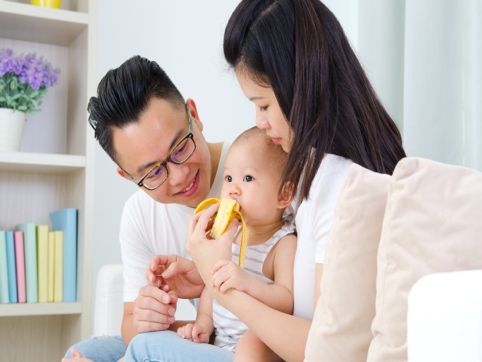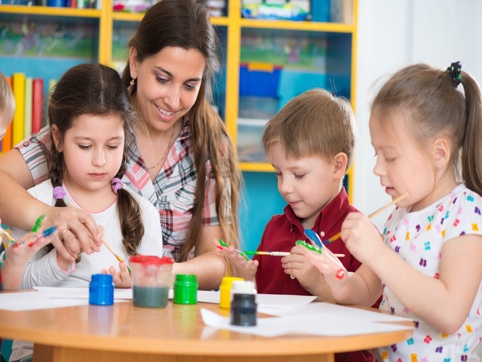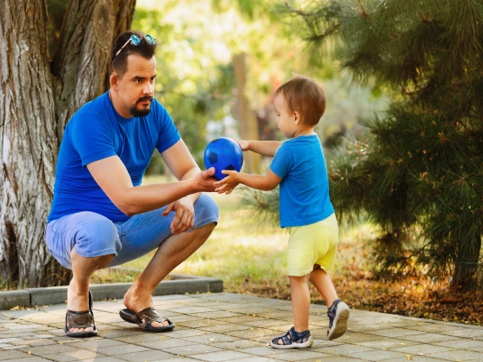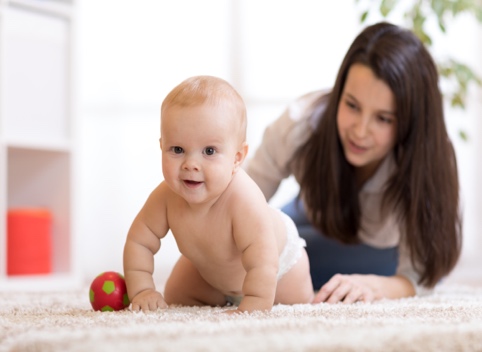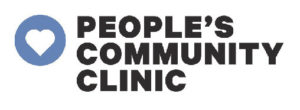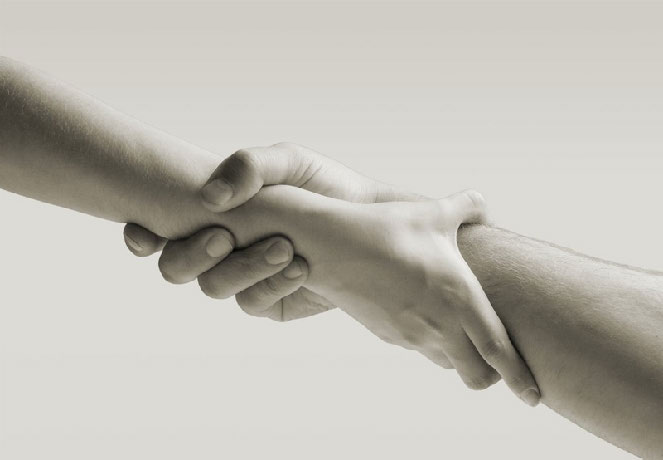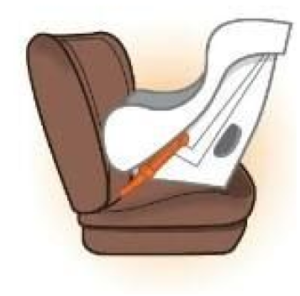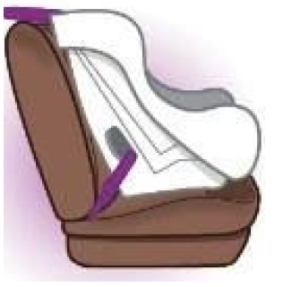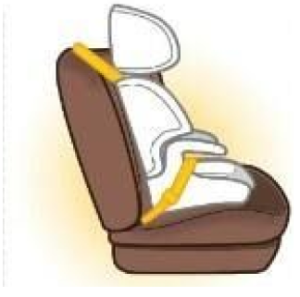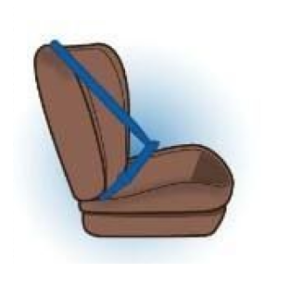HELP ME BE HEALTHY.
Look for signs that I’m ready to start using the toilet. I will let you know when I’m ready. If you wait until I’m ready to start teaching me to use the toilet, it will be much easier for both of us. I will let you know I’m ready when I can:
- Stay dry for a few hours after emptying my bladder.
- Tell you, “I’m wet” or “I have to use the potty.”
- Pull my pants down and up.
- Understand and follow your directions when you tell me “Go into the bathroom,” “Wipe,” or “Pull up your pants.”
At first, I may not even go when I sit on the toilet. I need time to get used to sitting on the toilet first. Be patient with me. There are books at the library about toilet training that could answer many of your questions.
TAKE CARE OF MY TEETH.
It may be time for my 6 month dentist visit. Regular visits help me keep my teeth healthy and keep little cavities from becoming big cavities. Remember to brush my teeth every day and limit my sweet drinks and snacks.
FEED ME OFTEN, I GET HUNGRY OFTEN.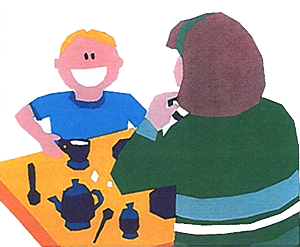
- I will usually eat three meals and two or three snacks a day.
- Snacks that are good for me are cheese, yogurt, juice, unsweetened cereal, fruits, and vegetables cut into small pieces, or part of a sandwich. Don’t give me a lot of soft drinks, cookies, and candy. Sport drinks aren’t good for me either.
- I’m teaming what foods taste like. There will be some foods that I don’t like now. There are some foods you don’t like either. If I’m a picky eater, I might try a new food if you give me a very small serving I’m more willing to try a new food if I know you won’t force me to eat it. I like it when you give me a taste of the food from your plate.
HELP ME BE SAFE.
- Teach me what to do if someone is touching me in a way I don’t like. I’m the boss of my own body. If I don’t like the way someone is touching me, I should tell you right away.
- When you cook on the stove, turn the pot handles to the center of the stove. Don’t leave spoons or other things hanging over the edge of a pot. I can pull on the handles and spill hot liquid over me.
- When I do have an accident, such as touching a hot oven and burning my fingers, help me understand what happened. Explain that if I touch the oven when it is hot, I will get burned.
- Empty ashtrays. You don’t want me playing with cigarette ashes.
- Empty drinking glasses and take away drink cans.
- Look at the toys in my toy box. Are there any broken toys? Fix them or throw them away. Do any toys have sharp edges? Be sure all my toys are safe for me to use.
PLAY WITH ME, IT HELPS ME LEARN.
- Read me stories every day. I like to pick out my favorites. I like to hear them over and over again. I like to have my very own books.
- Sing songs like “London Bridge” and “Ring Around the Rosie.”
- Play “Copy Me” games in front of the mirror.
- Let me help you around the house. I can pick up my clothes and toys or put napkins on the table. Give me a job to do.
- Help me learn the names of new people, colors, feelings, animals, planes and other things.
- Listen to what I say, even if it doesn’t make sense to you.
THINK ABOUT PRESCHOOL FOR ME.
Now is the time to start looking for a preschool for me. You can look in the phonebook yellow pages under the heading of schools, preschools, or child care to find a list. You can also call the Day Care Information Line at 1-800-862-5252. The Texas Department of Family and Protective Services also has a statewide list of regulated child care facilities on their website at www.txchildcaresearch.org. You can get this list also by calling 2-1-1. Not all parents want to use preschool. They may want to think about the Mother’s Day Out Program.
WATCH HOW I GROW.
I’m learning what is important to me.
If there are some things on this list I can’t do yet, talk to my doctor or nurse. To find a nearby Early Childhood Intervention program, call the DARS Help Line toll-free at 1-800-628-5115.
Watch for me to:
- Point to different body parts, either on me or one of my dolls.
- Say my own name.
- Stand and balance.
- Put on some clothes that are easy to get on.
- Run and jump. When I jump up, I can get both feet off the ground at the same time.
- Point to a picture and name something in the picture.
- Say two-word phrases like “Play ball”‘ or “Want drink.”
- Ask you questions.
- Understand and do something you ask me to do, like “Get the doll and bring it to me.”
You might notice that I also:
- Say new words, but I may not know the meaning of them.
- Eat the same food you eat. I like mine cut into small pieces that I can eat safely with my own little spoon.
- Ask to go to the toilet sometimes.

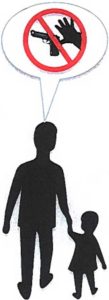 If your children play at another home, talk to the parents about gun safety.
If your children play at another home, talk to the parents about gun safety.